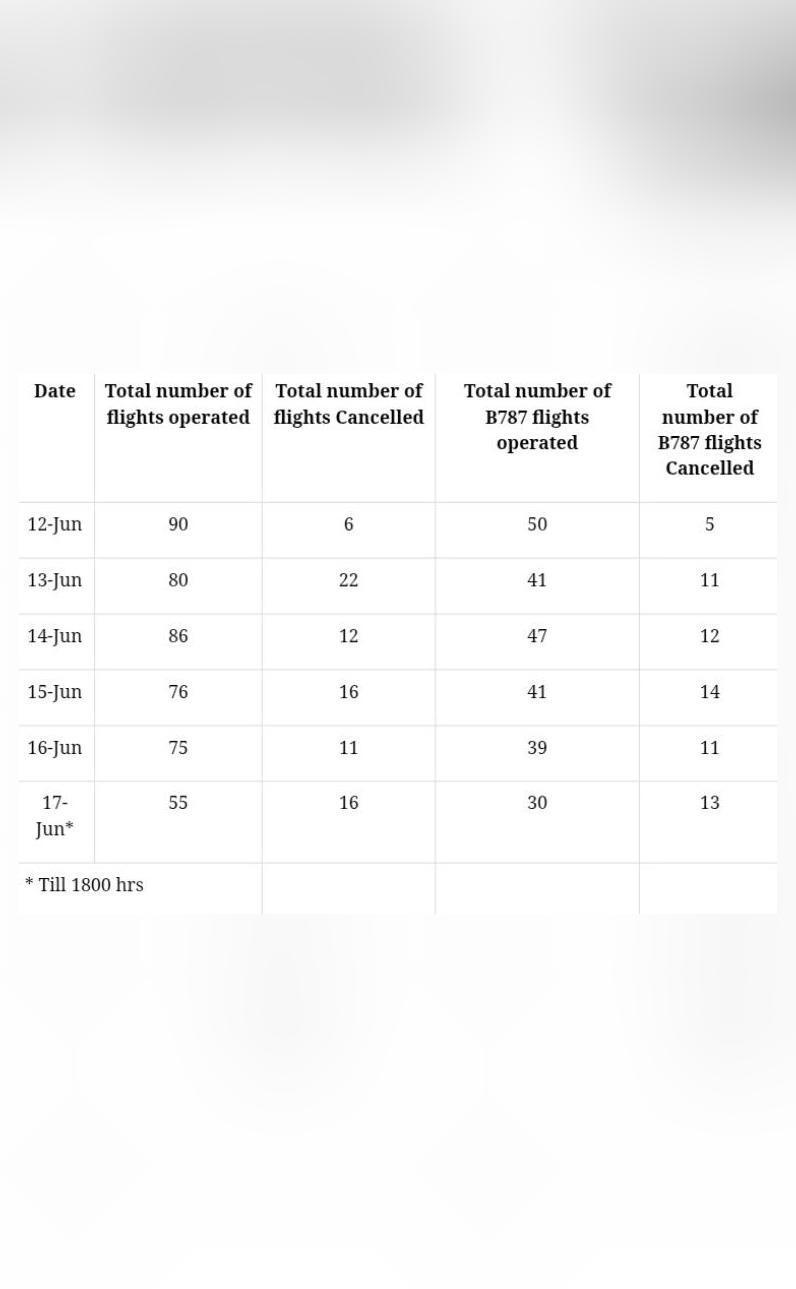
66 Air India flights cancelled between June 12 & 17 were Boeing 787 planes: DGCA
Air India’s recent troubles have been well-documented, with the airline’s Boeing 787-8 Dreamliner crashing in Ahmedabad earlier this year. In the wake of this incident, the Directorate General of Civil Aviation (DGCA) conducted a thorough review of Air India’s and Air India Express’s operations. The findings of this review have been made public, and they paint a concerning picture.
According to the DGCA’s report, between June 12 and 17 (till 6 pm), a total of 83 flights in Air India’s wide-body operations were cancelled. But what’s even more striking is that a whopping 66 of these cancelled flights were Boeing 787 flights. This is a staggering number, and it raises serious questions about the reliability and safety of Air India’s fleet.
The DGCA’s report is based on data collected from Air India’s and Air India Express’s operations between June 12 and 17. During this period, a total of 83 wide-body flights were cancelled, which is a significant number considering the usual cancellation rates for such flights. The report attributes the cancellations to a range of factors, including technical issues, weather conditions, and crew-related problems.
However, what’s most striking is the disproportionate number of Boeing 787 flights that were cancelled. Out of the 83 cancelled flights, 66 were operated by Boeing 787 aircraft. This is a staggering 80% of the total cancellations, and it suggests that there may be some systemic issue with these planes.
It’s worth noting that the Boeing 787 Dreamliner is a relatively new aircraft, and it’s known for its fuel efficiency and advanced technology. However, it’s also had its share of teething issues and safety concerns over the years. Air India has operated the Boeing 787 since 2012, and it’s one of the airline’s most popular long-haul aircraft.
The DGCA’s report raises several questions about the safety and maintenance of Air India’s Boeing 787 fleet. For one, it’s clear that the airline is facing significant challenges in maintaining its aircraft, which is leading to a disproportionate number of cancellations. This is a concern not just for Air India, but for the entire aviation industry.
Another issue that’s raised by the report is the lack of transparency and accountability within Air India. The airline has a history of being opaque about its operations and maintenance procedures, which can make it difficult to identify and address safety concerns. The DGCA’s report highlights the need for greater transparency and accountability within the airline, as well as more robust safety protocols to prevent similar incidents in the future.
In conclusion, the DGCA’s report is a wake-up call for Air India and the entire aviation industry. The airline’s Boeing 787 fleet has been plagued by cancellations, and it’s clear that there are significant systemic issues that need to be addressed. The report highlights the need for greater transparency, accountability, and safety protocols within Air India, as well as more robust maintenance procedures to ensure the reliability and safety of its aircraft.
As the aviation industry continues to evolve and grow, it’s more important than ever that airlines prioritize safety and transparency. The DGCA’s report is a reminder that even the largest and most reputable airlines are not immune to safety concerns and maintenance issues. By addressing these concerns head-on and implementing robust safety protocols, airlines can help to ensure the safety and well-being of their passengers and crew.






